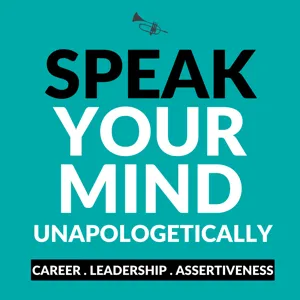Podcast Summary
Understanding what makes us miserable can lead to greater happiness: Identifying and eliminating common lifestyle choices and thought patterns that contribute to misery can help us make significant strides towards happiness.
Sometimes the best way to improve our lives and be happier is not by adding more things, but by subtracting the things that make us miserable. In the latest book "How to Be Miserable: 40 Strategies You're Probably Already Using," author and psychologist Randy Patterson shares insights from his work with patients suffering from depression and anger. Instead of asking them how to be happier, he asked them how they could make themselves feel even worse. This approach helped him identify common lifestyle choices and thought patterns that contribute to misery. The focus on self-improvement can sometimes backfire and make our lives more miserable. By understanding and eliminating these strategies from our lives, we can make significant strides towards happiness. If you're struggling with depression, anger, or assertiveness, this podcast episode with Randy Patterson is a must-listen. Check out the show notes at AOM.IS/miserable for resources mentioned throughout the show.
Using unconventional methods to enhance therapy sessions: Incorporating unconventional techniques, like asking clients to feel worse to win imaginary money, can make therapy sessions more memorable and effective by promoting self-awareness and control over mood.
Using unconventional methods, like asking clients to make themselves feel worse to win imaginary money, can help enhance their receptivity and make therapy sessions more memorable. This approach not only breaks the ice but also helps clients realize they have some control over their mood and that change might involve stopping negative behaviors rather than adding new ones. It's intriguing that people, regardless of having severe mood problems or not, have a natural tendency to make themselves feel miserable. This could be due to focusing too much on future happiness and forgetting the present moment. By recognizing this, individuals can start their journey towards improvement by addressing their current negative behaviors.
Small steps towards better habits: Incremental changes in exercise, healthy eating, and social connections can lead to long-term improvements in mood and overall well-being
When we're feeling overwhelmed or unhappy, it's easy to make short-term choices that may bring temporary relief but ultimately lead to more misery. Our society, with its emphasis on competition, convenience, and isolation, encourages these choices. However, making drastic changes all at once can be overwhelming and unsustainable. Instead, incremental steps towards better habits, such as regular exercise, healthy eating, and social connections, can lead to long-term improvements in mood and overall well-being. It's important to remember that small, consistent actions can add up to significant progress.
Excessive screen time and lack of social life: Limiting screen time and prioritizing social interactions can improve mental and emotional health
Certain lifestyle habits can negatively impact our well-being and create a cycle of misery. Two of these habits are maximizing screen time and minimizing social life. Spending excessive hours in front of screens not only keeps us sedentary and isolated but also exposes us to an overwhelming amount of negative information, which our brains are drawn to. This constant consumption of negative information can have detrimental effects on our mental and emotional health. It's essential to be mindful of our screen time and make an effort to balance it with social interactions and engaging in activities that bring us joy and fulfillment.
Assumptions about media consumption are incorrect: People consume the same amount of media overall, but computer time can interfere with other activities and setting SMART goals is essential for progress
While we may assume people are spending less time on traditional media like television and more on the computer, the truth is that people are actually consuming the same amount of media overall. However, the time spent on the computer is often eating away at other areas of life, such as meal times and social interactions. Additionally, setting vague, unrealistic, and unachievable goals (vapid goals) can hinder progress towards ultimate objectives and even lead to feelings of failure. It's important to set specific, measurable, achievable, relevant, and time-bound (SMART) goals instead.
The Misery of Constant Happiness: Embrace a range of emotions, learn to tolerate negatives, and understand their purpose for emotional resilience and well-being. Avoid isolation and downward comparisons.
The pursuit of constant happiness can lead to more misery, as it sets an unrealistic standard. Instead, embracing a diverse range of emotions and learning to tolerate negative ones can lead to greater emotional resilience and overall well-being. Misery doesn't make people isolate from others, but it can increase the likelihood of doing so, and when around others, people may engage in downward comparisons, subtly judging themselves against others. Ultimately, it's important to remember that all emotions serve a purpose and aim for a balanced appreciation of the human experience.
Comparing ourselves to others and setting boundaries: Comparing ourselves to those who excel can lead to negative self-perception and feelings of inadequacy. Setting boundaries and being assertive can help create equal relationships and foster greater self-confidence and overall well-being.
Downward comparisons and lack of boundary setting can significantly contribute to feelings of unhappiness and inadequacy. Downward comparisons involve comparing ourselves to those who seem to excel in areas where we feel deficient, often ignoring the fact that others around us may also lack in the same areas. This can lead to negative self-perception in various social domains. On the other hand, not setting boundaries and being assertive can result in feelings of powerlessness and resentment. Assertiveness is not about getting one's own way aggressively but rather about creating an equal relationship with others. Understanding these dynamics and practicing healthy comparisons and boundary setting can help foster greater self-confidence and overall well-being.
Barriers to Assertiveness: Fear of Conflict, Personal History, and Gender: Fear of conflict, personal history, and gender can hinder individuals from adopting assertiveness as a mindset or skill. Self-awareness, determination, and resilience are necessary to overcome these barriers.
Assertiveness, whether seen as a mindset or a skill, can be challenging for some individuals to adopt due to various barriers. Fear of conflict is a significant obstacle for those with a passive style, as they may fear being attacked or humiliated when expressing disagreement. On the other hand, those with an aggressive style may believe that toning down their dominance and assertiveness will result in a loss of control and inability to get things done. Another barrier is personal history, as people may be resistant to change in those they know and expect to conform to a certain role or behavior. Gender also plays a role, as women may face additional challenges and criticism when expressing assertiveness, making it even more difficult for them. Assertiveness is indeed a skill that can be practiced and developed, but overcoming these barriers requires self-awareness, determination, and resilience.
Don't let self-improvement consume you: Balance personal growth with present enjoyment and diverse interests for a fulfilling life
While we strive for self-improvement and happiness, it's essential not to let the pursuit consume us. Skills and abilities learned in one area of life can sometimes be applied to others, but it's crucial to remember that assertiveness or mastery in one domain doesn't guarantee the same in others. Moreover, constantly focusing on self-improvement can hinder living in the present and enjoying life. Instead, it's recommended to find a balance, allowing time for personal growth while also engaging in activities unrelated to self-improvement. Pretending to be good enough and embracing various interests can help foster a positive self-perception and encourage living life to the fullest.
Finding balance in self-improvement and self-acceptance: To make progress in self-improvement, balance efforts with self-acceptance and self-compassion
Self-improvement can be a powerful tool for personal growth, but it can also reinforce feelings of faultiness if we focus too much on our flaws. According to Randy Patterson, author of "How to Be Miserable," there's a part of our brain that may feel like an outsider, observing our attempts to improve ourselves and judging our worthiness. By spending time pretending we're already good enough and focusing on what we would do if we were, we can leapfrog over this self-criticism and make progress. Patterson encourages readers to balance their self-improvement efforts with self-acceptance and self-compassion. To learn more about Patterson's work, visit his website at RandyPatterson.com. Remember, the key to being miserable, and ultimately happier, is to find a balance between striving for improvement and accepting ourselves as we are.













